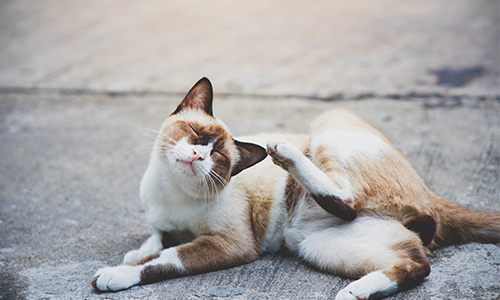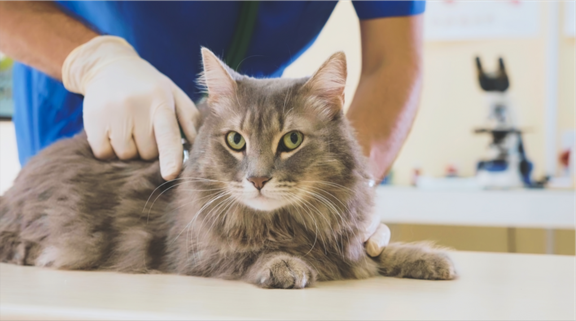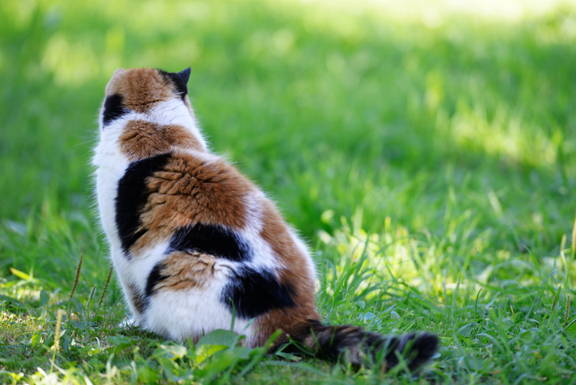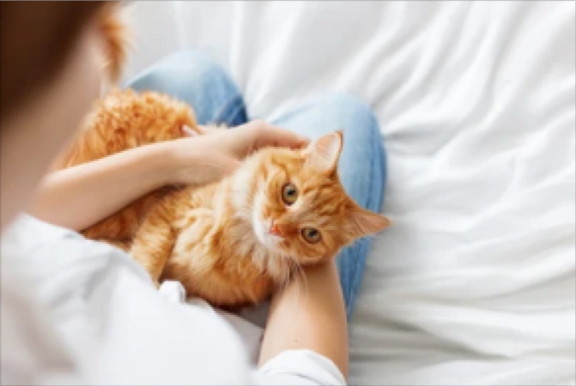
It’s an age-old debate: Are you a cat person or a dog person?
Of course, some pet lovers delight in unbias love for all their four-legged friends, but true cat lovers usually feel they have an upper hand. After all, cats are known for their poise and polish and are self-starters when it comes to cleanliness and hygiene.
That said, when your cat stops cleaning their bum properly, it can be a huge, well, bummer! A bad-smelling or unhygienic rear end could mean trouble for your cat’s health.
There are many reasons why your cat may have trouble properly self-cleaning. Though an unpleasant area to investigate, your cat’s rectal area will likely offer clues that will illuminate the source of the issue. Here are a few reasons why your cat’s bottom may not be in top shape.
Pet Parents are Also Reading
WHY IS MY CAT NOT CLEANING ITS BUM PROPERLY?
An excess of hair around the rectal area may cause issues for your cat. Long-haired cats in particular may have more difficulty self-grooming, because feces can become tangled and stuck in their fur. This is especially true for long-haired cats, who tend to experience mats around their bum that are likely to gather feces and urine.
When cat fur becomes matted, or tangled and dirty due to poor grooming, your cat might need some special assistance from you, a groomer or your vet to resolve the issue.
For most cats, support in grooming is not necessary much of the time. But if your cast is experiencing issues in self-grooming and needs a bit of extra TLC, maintaining a regular grooming schedule is key. This is especially true for long-haired cats. Speak to your groomer or vet about the frequency with which you should schedule trims around your feline friend’s bottom area.
If you've ever observed observed a cat while they groom themselves, you know there is an act of functional acrobatics. They twist, bend and lick to clean all those hard-to-reach places. But if your cat is suffering from mobility issues, it may be impeding their cleaning routine. Cats have to turn all the way around to clean their bottoms, so they may abstain or when they find it difficult or painful to reach.
Arthritis is especially common among older cats. Overweight cats may also find it more difficult to maintain proper grooming habits, due to a lack of energy and flexibility. If you suspect arthritis or weight issues may be limiting your cat’s mobility, it’s important to consult your vet to address the problem before it gets worse.
A cat’s anal glands are the two small pouches that rest on either side of the anus. These anal glands normally secrete a small amount of anal fluid when your cat passes a bowel movement. However, anal glands can become irritated or impacted if this secretion is not properly expressed. This lead to stinky situations!
Have you noticed an unsightly brown streak on your floor? Unfortunately, your pet might be trying to tell you something! Impacted anal glands can leak brown fluid and cause dysfunctional bowel movements. Cats who are struggling with an anal gland problem will tend to scoot their bum across the floor, attempting to relieve the pressure of impaction.
Impacted stools are super uncomfortable, and though they are seeking some relief, your cat’s scooting is likely to cause feces to become trapped in the fur. To add insult to injury, anal gland impaction is also painful, so your pet might be putting off their typical hygiene routine to avoid increasing their pain level and sensitivity.

How Can I keep my Cat's Bum Clean?
The secret to a clean backside? Improving what your cat takes in from their frontside! A high-fiber diet is the best way to ensure that your cat maintains great anal health. Fiber creates firm and bulky stools, which are less likely to get tangled in fur and more like to support proper anal gland expression. Supplements like Glandex are a great way to ensure your cat’s BMs are A-OK, and will ensure they can take charge over their hygiene and day-to-day upkeep.
Putting the Vet in Vetnique

Join the Pack!

Sign up for exclusive deals, curated pet tips from veterinarians, and product launches!
Pet Parents are Also Reading...
August, 2020
Related Articles
July, 2021
October, 2020
Related Products

Join The Pack
Sign up for exclusive deals, curated pet tips from veterinarians, and product launches!
















